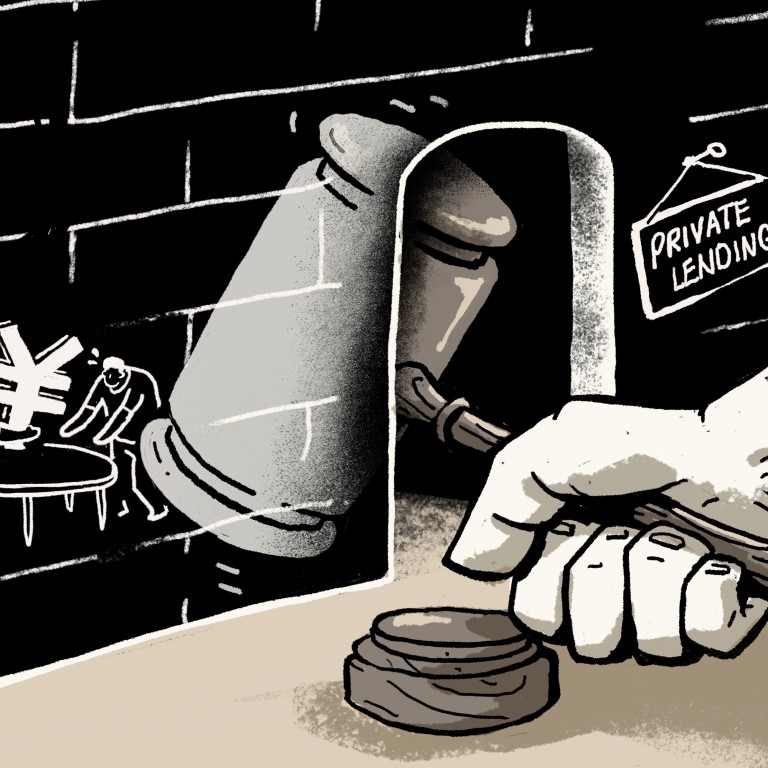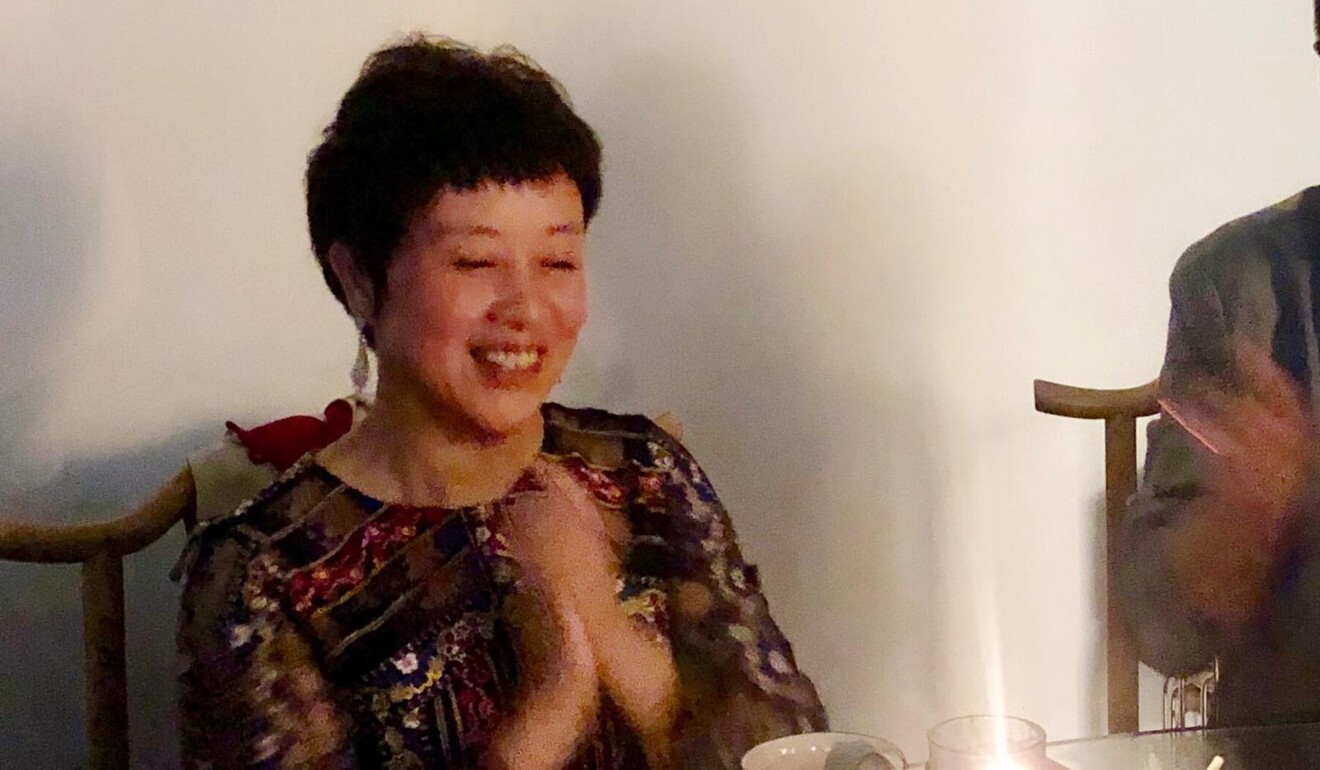
Dark side of China’s organised crime crackdown revealed in private lender case
- Loans to cash-hungry businesses lead to life imprisonment for woman caught up in campaign against ‘black and evil forces’
- As Luo Wenjun awaits appeal decision, her lawyer warns this and similar cases could end the country’s vast private credit market
This is the second in a series by the SCMP looking at how China’s legal system has changed over the decades and some of the challenges it faces today. Here, Jun Mai looks at how lenders vital to the booming private sector have been caught in ever-changing regulatory nets.

The crackdown saw 54,000 people prosecuted since its 2018 launch – close to 12 times the number in the three years before the campaign began – according to the annual report of the Supreme People’s Procuratorate, released this month.
In announcing the results, top prosecutor Zhang Jun urged caution against using criminal proceedings in civil disputes. But Zhang made a point of saying there should be severe punishments for “debt entrapment” – referring primarily to easy loans offered to college students, families with mortgages and other less well off groups, according to official statements.
Before she was rounded up in 2019 as part of the nationwide campaign against “black and evil forces” – official jargon for organised crime – Luo, 55, had hundreds of clients, including local government officials who needed loans for their family-run businesses. This was despite charging interest at higher than the benchmark rate.
“It was a lucrative business, especially when the economy was in good shape,” said her daughter Sarah, who spent a year helping Luo before going to law school in the US in 2014, where she is now a corporate lawyer. “But realistically they [the borrowers] were in a more powerful position.
“There was nothing you could do if the loans were not paid back on time. Suing was a last resort because a lawsuit may bankrupt a debtor and you would not get your money back,” said the younger Luo, who recalled making numerous phone calls to clients, who were mostly powerful businessmen with hundreds of employees.
Taking on the mob: 79,000 snared in crackdown on organised crime
With her legal training, Luo’s daughter assumed taxation compliance was the greatest risk her mother could potentially face. She, and the rest of the family, were shocked when Luo was arrested for making loans, many of which had been recognised as legitimate in previous civil lawsuits.
Luo was found guilty of fraud and sentenced to life imprisonment, with all her assets confiscated – including properties bought before she entered the lending business in 2007. The verdict was handed down in November – as provinces raced to beat the end-of-year finish line for the organised crime crackdown.
In Zhejiang province, where Luo lives, 11 billion yuan (US$1.7 billion) in crime-related assets were seized last year, according to an announcement by provincial authorities in October.
Luo was just one of the many private lenders who make up the country’s immense nonbank lending market, which has a total estimated value of about 3.4 trillion yuan, according to data released earlier this year by Moody’s.
China’s small and micro businesses – which account for 80 per cent of the country’s jobs – obtained up to 40 per cent of their finance from the private lending market, according to a 2018 estimate by Yi Gang, chairman of the People’s Bank of China.
China moves to bring US$12.9 trillion shadow banking sector out of the dark
“The private lending market has made an active economy and grass roots innovation possible,” said Tang Dajie, a researcher at Beijing-based think tank the China Enterprise Institute. “Official financial institutions are not able to reach the capillaries of the economy.”
Officials have openly admitted that the size of the private lending sector has underlined the inability of China’s state-monopolised banking industry to finance the country’s cash-hungry businesses.
While it remains difficult for China’s cash-hungry private sector to finance its growth, Beijing is under tremendous pressure to deleverage its economy.
China’s debt in the private sector is much higher than in many developed economies. Its total credit to the private non-financial sector was 224 per cent of its GDP in the third quarter of 2020, according to the Basel-based Bank for International Settlements. That compared with 162 per cent in the United States and 176 per cent in the euro zone.
Beijing has made sporadic efforts to protect the private credit system. In 1997, China’s top court set an interest rate ceiling on private loans, to be enforced by the lower courts, which provided some legal protection to lenders. And, since 2013, the Supreme People’s Court has made the names of debtors recognised by civil courts public, banning them from boarding flights and high-speed trains.
Soaring state-firm debt China’s ‘biggest risk’ as virus slows deleveraging
But in Luo’s case, successful judgments in the civil courts against some of her debtors proved to be no protection. Even those whose names had been added to the national website of “discredited people” for defaulting on their payments to her, became “victims” of fraud in the case against her.
“It’s a feast for the defaulters,” said Luo’s lawyer Wang Zhaofeng, adding that he was seeing similar cases around the country. “It’s going to bring down the entire private credit market.”
One of Luo’s debtors, businesswoman Wang Lingmei, told the court she had been approached by local police who suggested she testify against Luo in return for having the loan nullified, but she refused. “I told them that I should pay back the money I owed,” she said during the trial.
Unfortunately, policy inconsistency has long been a reality for private lenders, with the maximum legal interest rates for private lending adjusted every few years in the past two decades.
China to slash private interest rate cap in crackdown on ‘usurious loans’
In a move that was seen as a huge blow to the industry, the rate was cut drastically in August, from 24 per cent to around 15 per cent, by the Supreme People’s Court which cited the heavy financial burden placed on small and medium sized businesses by the Covid-19 pandemic.
Luo’s fate was sealed in 2019, in the second year of the national crackdown, when Beijing issued a directive to local law enforcers instructing them to link problematic loans with organised crime. The intention was to focus on fraudulent lending which targeted college students and the elderly, although prominent legal scholars warned there was a high risk of abuse.
The Zhejiang authorities rounded up Luo, along with five of her friends and two family members – described as domestic helpers – who were also convicted. On top of the fraud charges, Luo’s friends were also found guilty of other offences, arising from a scuffle with a security guard, as well as holding banners urging borrowers to make their payments, and in some cases, stalking.
According to Luo’s lawyer Wang, it is common in these cases to also target friends and family, as a way of proving the charge of organised crime. The tactics reminded him of dark experiences from previous regional and national anti-crime campaigns, including the notorious crackdown on organised crime in Chongqing in the early 2010s, when he represented several of its targets.
Detentions, torture, executions: how China dealt with mafia in the past
Wang said that, during most of Luo’s detention, she was denied access to her lawyers, who met her for the second time just two days before she was handed over to prosecutors. By then, she had already made most of the confessions needed for the court to convict.
“This is a criminal case, not related to state secrets, but she was detained and registered under a pseudonym [which meant lawyers were unable to find her name in the detention facilities’ records],” he said. “She was also relocated between facilities several times. I think they were trying to stop us from locating her.”
Wang said the court had also turned a blind eye to joint expert testimony from five prominent Chinese legal scholars – some of whom had advised legal bodies at the central government level – who argued that Luo’s lending did not constitute fraud.
Even the verdict confirmed that most of Luo’s loans – totalling 92 million yuan – were still in the hands of her “victims” which, Wang said, meant she had not benefited at all.
How big is China’s debt, who owns it and what is next?
A month before her arrest, Luo’s friends suggested she leave the country for a while, after one of her debtors made allegations against her over loans which had been settled years before in the civil courts.
Upset that she was being accused by people she believed she had helped generously, and above all convinced of her own innocence, Luo chose to stay. When she went to her local police station, it was of her own volition. She never returned.
There is one hopeful sign for Luo, whose case has been going through the appeals process. This month, just before the deadline for a verdict from the appeal court, the provincial court handed it to prosecutors for review.
It is a rare development, with most appeals determined solely within the appeal court system, giving Luo’s family hope that perhaps the authorities have recognised the controversy over her case.




